How to Avoid a Car Accident in Extreme Weather
2017 has been a year of extreme weather events. From Hurricanes Harvey, Irma, and Maria to the wildfires that raged on the west coast, many people suffered from natural disasters this year. Although Indiana remained largely unaffected, Hoosiers are already preparing for another Midwest winter that’s sure to bring extreme weather and heavy snow. Extreme […]
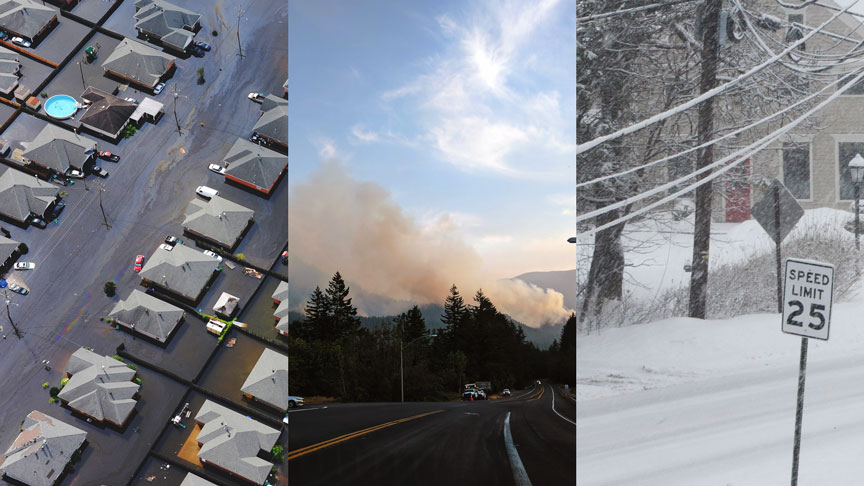
October 6, 2017

2017 has been a year of extreme weather events. From Hurricanes Harvey, Irma, and Maria to the wildfires that raged on the west coast, many people suffered from natural disasters this year. Although Indiana remained largely unaffected, Hoosiers are already preparing for another Midwest winter that’s sure to bring extreme weather and heavy snow.
Extreme weather isn’t a daily occurrence, which means that many people don’t know what to do when they encounter it. Is it best to evacuate or stay put? When does it become too dangerous to drive?
It almost goes without saying that extreme weather increases the amount of car accidents in an area. Whether from lack of visibility or lack of traction, it’s too easy to lose control of your vehicle in such hazardous conditions. Here are a few tips on how to avoid a car accident in different types of extreme weather events.
Flooding
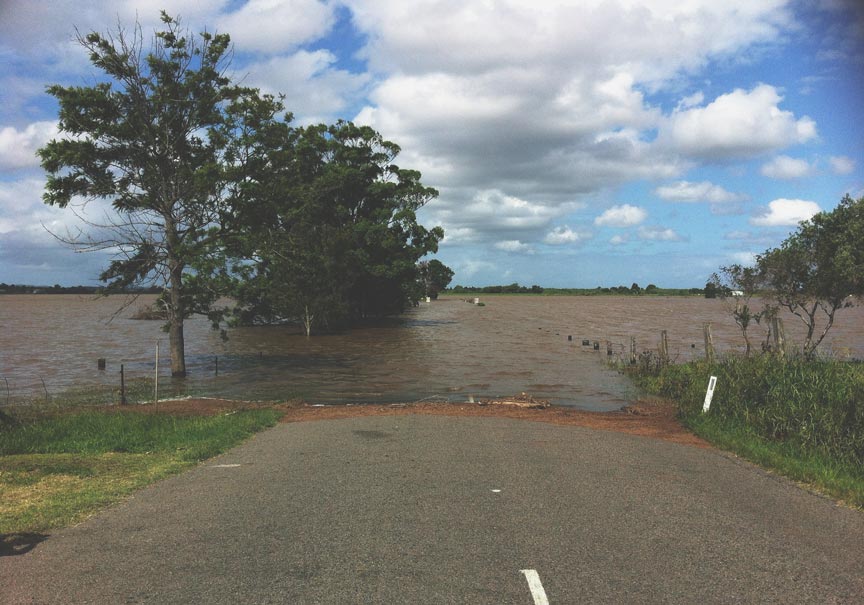
If you encounter a flooded road, the safest thing to do is to turn around and seek an alternative route.
The National Weather Service, along with other local and federal government bodies, encourages people to “turn around, don’t drown.” Even a small amount of water can be a serious risk to your safety. Six inches of fast-moving water can knock over an adult, and 12 inches can carry away a small car. Two feet will take away most vehicles.
According to the Centers for Disease Control and Prevention, more than half of all drownings related to flooding occur because a vehicle was driven into flood waters. According to Vox, if you drive into a flooded area, you may:
- Spin off of the road
- Stall and get stuck as water is rising
- Get carried off by rushing water
- Hit trees that are in the road
- Drive into collapsed parts of the road
That’s why it’s always best to turn around. If you want to drive but haven’t gotten into your car yet, it’s best to stay put if you cannot tell how deep the water is outside.
If you’re trapped and you must drive through flood waters, it’s important to drive slowly to give yourself the best chance of remaining in control of your vehicle. If other cars are driving into the water, watch them so you can estimate how deep the water is. Keep in mind that if your engine stalls, restarting it in water may permanently damage it. If you cannot restart your engine and you get stuck, evacuate your vehicle and find higher ground.
Wildfire
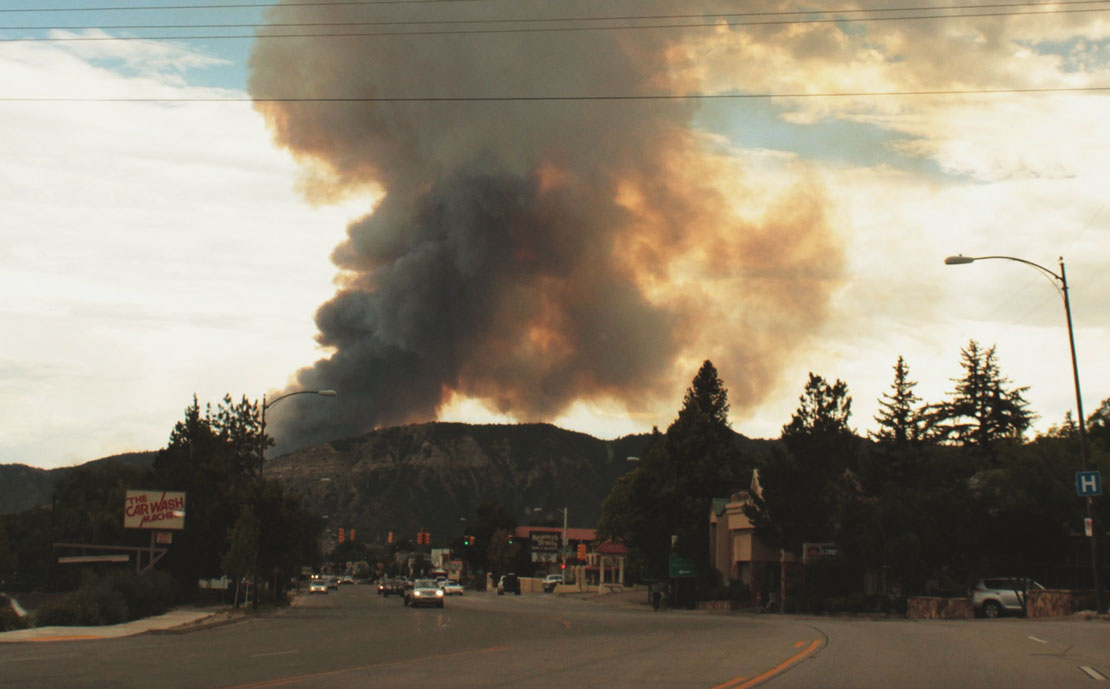
Although wildfires are extreme events, they are somewhat expected, at least out West. Every summer, the people of California, Nevada, and other western states can expect a hot, dry season to give way to some wildfires. Because of this, the local government is typically prepared to battle the flames.
But as you drive through wildfire country, you may still need to take certain precautions to stay safe.
First, be sure to roll up your windows and close air vents to keep smoke out of your vehicle. It can easily irritate your eyes and lungs. Next, make sure your headlights are on to increase your visibility, especially if smoke is present. Drive slowly to avoid a collision due to low visibility. Avoid heavy smoke if at all possible.
If fire is approaching the road, turn around and drive away from the fire or exit your vehicle and run from the fire. Your car is not necessarily the safest place to be in a fire because its small space heats up quickly. You will likely be safer running from the fire on foot than waiting out the fire in your vehicle if the fire is inevitably going to reach your car.
If you have to stay in your car but cannot outrun the fire, park behind a solid structure to block radiant heat from the fire. Avoid parking near anything that will easily combust, like grass or twigs. Get down low in your car and drink water if you have any available. Wait for the fire to completely pass before exiting your vehicle again.
Blizzard
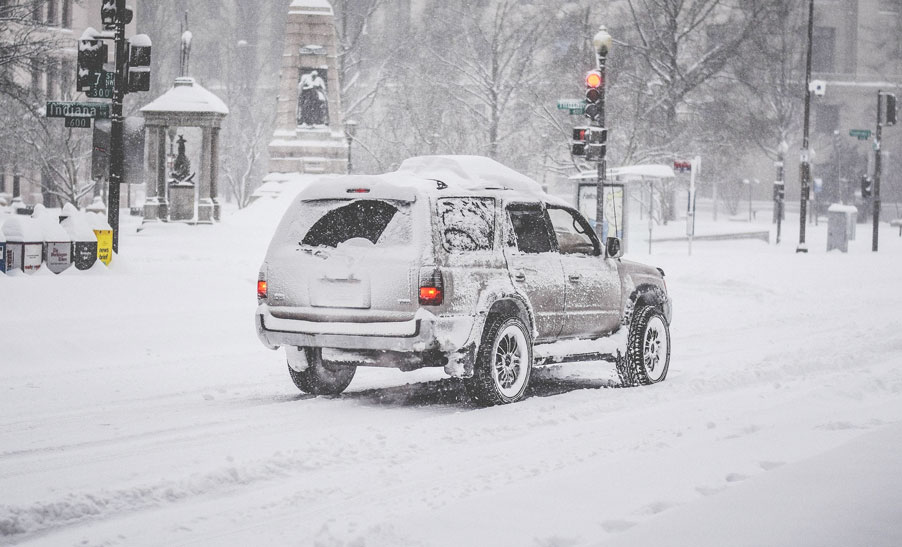
The type of extreme weather most Hoosiers are probably familiar with is a blizzard. Although you might think yourself an expert in winter weather driving, it’s still a good idea to go over the following safety tips and make sure you’re doing everything you can to stay safe this winter.
As with all extreme weather events, the best, safest option is to not drive at all. However, if you’re already on the road when the blizzard hits or you desperately need to get somewhere, there are a few precautions you should take.
First, make sure your tires are properly inflated. Put on snow tires if you have them. The biggest risk in winter weather is that you’ll lose control of your vehicle on roads slick with snow or ice or both. You won’t be able to drive through a blizzard without good tires.
Next, before you ever hit the road, check your exhaust pipes. If your exhaust pipes are clogged, you run the risk of being poisoned by carbon monoxide.
You should also double-check your lights and wipers. Stay off of the road if your headlights, brake lights, or turn signals aren’t working. In a blizzard, your vehicle may be reduced to just pinpricks of light through the heavy snow to the car behind you. Make sure your wipers are in peak condition and refill your washer fluid. It’s not only important to be visible to other drivers, but to make sure you can see as well.
Don’t drive if you’re close to empty. Make sure to fuel up if a blizzard is predicted for your area.
Although you don’t want to get stuck on the road, you should prepare your vehicle as if you’re definitely going to get stuck. Pack your spare tire and make sure it’s in good condition. Throw a shovel and an ice scraper in the trunk as well as a heat-reflecting blanket if at all possible. Bring extra gloves and socks in case yours get wet. Pack some snacks and make sure your phone battery is charged.
On the road, don’t depend too much on your all-wheel-drive system. Drive slowly and be prepared to brake slowly. Harsh braking may cause you to lose control of the vehicle.
Stay within already established tire tracks. Don’t use cruise control; you need to be paying attention to the road at all times. Watch out for patches of black ice, and avoid bridges if you can or other roads that are likely to freeze over.
If you do start to lose control, don’t pump the brake if your vehicle has an anti-lock braking system (ABS). That just causes your brake system to turn off and on. Instead, steer in the direction you’re skidding to attempt to regain control over your vehicle.
If You Evacuated
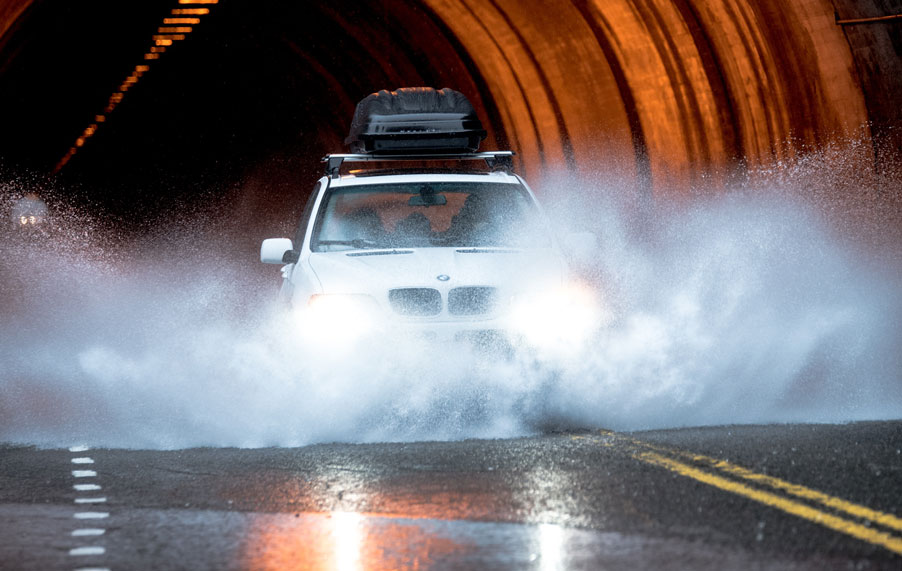
Sometimes, the government issues warnings in advance of extreme weather, giving people the chance to evacuate. If you’re evacuating your home and neighborhood to avoid extreme weather, there are still some precautions you’ll want to take in order to avoid a traffic collision.
First, it’s important to have all of your essentials with you so you don’t have any reason to turn around to go get something. Your bag of essentials should include:
- IDs, passports, and other important identifying papers
- Your health insurance and property insurance documents
- Medical records
- Prescriptions
- Cash
- Food and water
- First aid supplies
- Pet food, if necessary
- Extra gasoline, if you have room
Traffic is going to be terrible. Expect long delays. Try to conserve gasoline by turning your car off in stopped traffic rather than letting it idle. You may not be able to refuel for a long time. Some stations will inevitably run out of gas.
Look for ways that the government may help you during the evacuation. In Florida, for example, tolls on all Florida roads were suspended to keep traffic flowing as people evacuated to avoid Hurricane Irma.
Because roads will be so congested, it’ll be easy to get into a car accident if you’re not paying attention. Leave enough space between you and the car in front of you so you have time to stop if they brake suddenly. A fender bender will just add more stress to an already stressful evacuation.
Help from an Indiana Car Accident Attorney
In extreme weather, accidents are bound to happen. No matter how many precautions you take, you cannot protect yourself completely from someone else’s reckless driving. If you’ve been injured in a car accident, an Indiana car accident attorney can help. Call Hensley Legal Group today or contact us online for a free consultation.
Available 24/7
Free Case Review
You won’t pay any fees until we win your case.
It’s easy - you can: